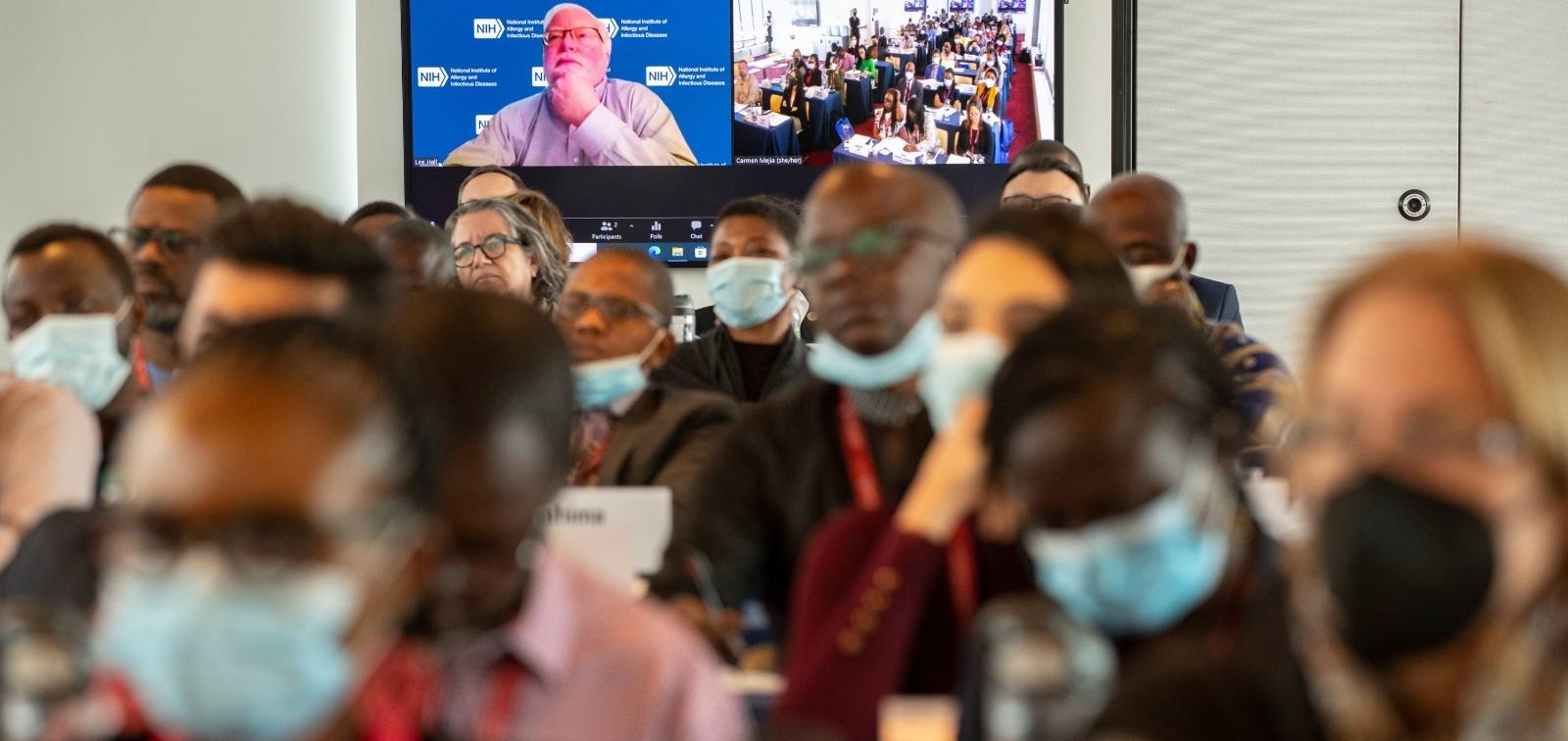A Week of Insightful Discussions Around Malaria
The course Science of Eradication: Malaria, co-organized by ISGlobal-University of Barcelona, brought together nearly 50 malaria leaders from 26 countries to learn and reflect on how to advance the fight against this disease
01.07.2022
The leadership course Science of Eradication: Malaria (SoE) brought together 46 high level managers and staff from National Malaria Control Programs, academia, international organizations, civil society organizations and the private sector for a week-long reflective exercise characterized by the participatory learning approach and a multidisciplinary program ranging from the basic biology of malaria transmission to innovative products in the pipeline, and issues related to leadership, policy, governance, research, innovation, training and capacity building.
The annual SoE course is organized by a consortium formed by the Barcelona Institute for Global Health-University of Barcelona, Harvard University, and the Swiss Tropical and Public Health Institute, and it is held alternatively in Barcelona, Boston and Basel. The 10th anniversary of this course this year saw a return to the face to face format, following the cancellation of the course in 2020 and an online edition in 2021 in the context of the COVID-19 pandemic.
Malaria endemic countries need to have enhanced ownership of their own malaria strategies and plans
Pedro L. Alonso, professor at the University of Barcelona and director of the WHO Global Malaria Program until March, 2022, addressed the opening ‘Ned Hayes Lecture’ and highlighted how the context of malaria has changed drastically during the last few years, including a stagnation of progress in recent years and the disruptions caused by the ongoing pandemic. Most importantly, he encouraged countries to adapt their strategies to the local specificities of malaria epidemiology, and highlighted that this approach is being promoted by the WHO through much more flexible malaria policies and guidelines.
The shift of leadership from international donors and organizations towards malaria endemic countries was repeatedly highlighted over the course sessions. All agreed on the importance of country ownership of malaria strategies, building bridges between malaria researchers and those responsible for public health to ensure cross-fertilization and mutual support, the use of local data for decision making at different levels of the health system, and engagement of multiple stakeholders in the fight against malaria. Participants also had the opportunity to contribute to the discussions and outcomes of the global engagement Rethinking malaria in the Context of COVID-19 based on their own country expertise, gaps and contexts.

ISGlobal faculty members this year included Núria Casamitjana, Regina Rabinovich, Caterina Guinovart and Matiana González. (Harvard University)
“This course provides participants with a unique opportunity to devote an entire week to learn and reflect on what they do and how they can do it better. Bringing together high level malaria leaders in an academic safe space, has proven a successful model to trigger inspiration and innovative thinking” said Núria Casamitjana, director of the Education and Training Department at ISGlobal and co-organizer of the course since its first edition in 2012. Other ISGlobal faculty members this year included Regina Rabinovich, Caterina Guinovart and Matiana González.
Over the past 10 years, almost 700 people have been trained in the SoE courses, most of them having reached or still occupying leadership positions in the malaria field. Cohorts have also gained in gender parity, with a slightly higher proportion of women in the 2022 edition. Among these female participants in Boston this year was Nana Aba Williams, coordinator of the MESA Alliance at ISGlobal, who not only valued the technical components of the course, but also the networking opportunities. “I enjoyed every single minute of the course, from the preparatory work to the high quality sessions and the lively discussions. In addition to that, I had an incredible opportunity to meet fellow participants and a broad array of top leaders across different fields from around the globe”, she said.



